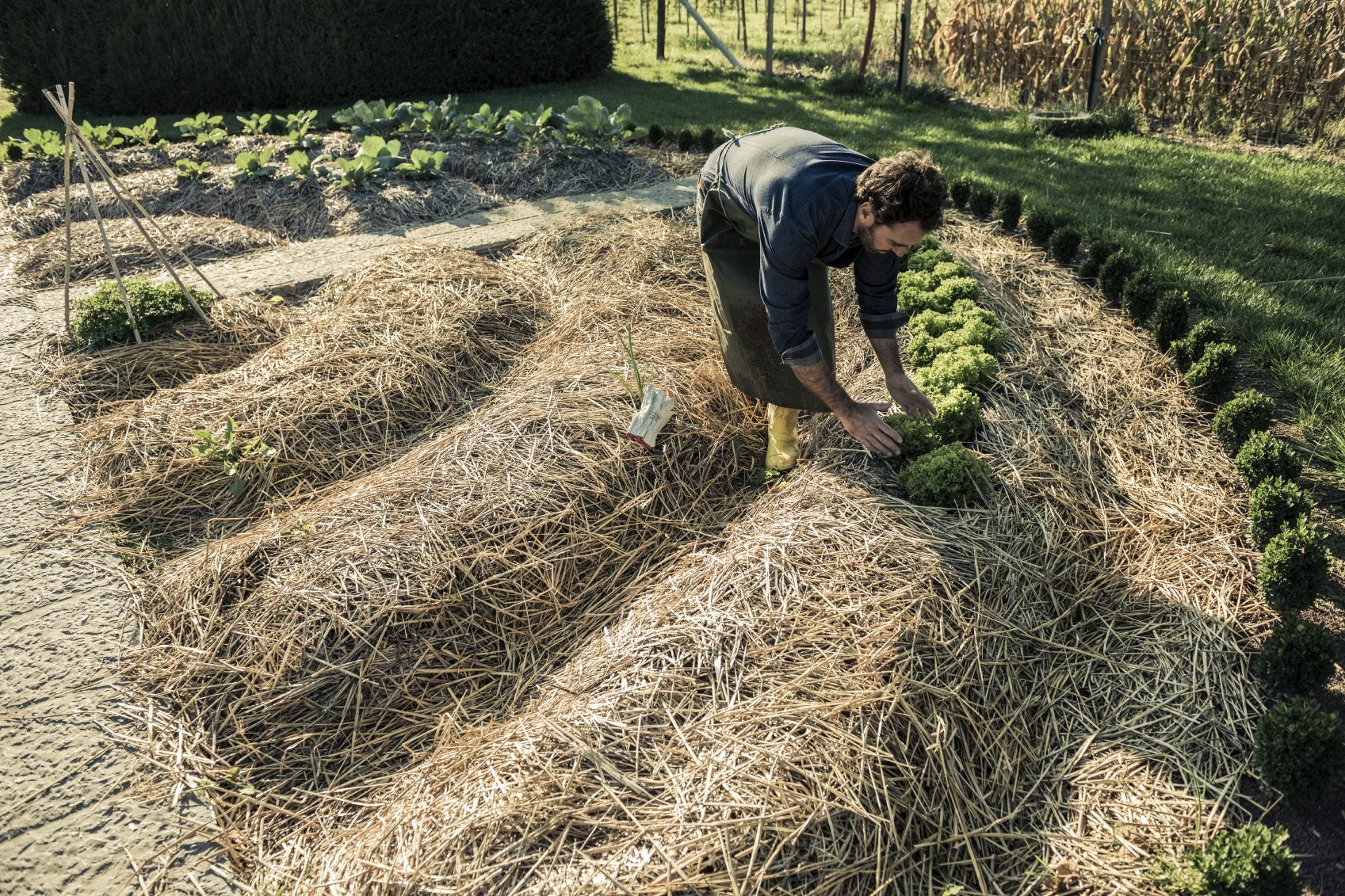

Articles
What Is The Best Mulch For A Vegetable Garden
Modified: October 19, 2024
Looking for the best mulch for your vegetable garden? Discover expert gardening tips and advice on choosing the perfect mulch for optimal plant growth and soil health.
(Many of the links in this article redirect to a specific reviewed product. Your purchase of these products through affiliate links helps to generate commission for Storables.com, at no extra cost. Learn more)
Introduction
Welcome to the wonderful world of vegetable gardening! Whether you are a seasoned gardener or just starting out, one essential practice that can greatly benefit your vegetable garden is mulching. Mulching refers to the process of covering the soil surface with a layer of material, such as organic or inorganic matter. This layer acts as a protective barrier, providing numerous advantages for your plants and the overall health of your garden.
Mulching serves several important purposes in a vegetable garden. First and foremost, it helps to regulate soil temperature by insulating the soil from extreme heat or cold. This is especially crucial in regions with fluctuating weather conditions. By keeping the soil temperature more stable, mulching provides a more favorable environment for plant roots, allowing them to flourish and absorb nutrients more efficiently.
In addition to temperature control, mulching helps to retain soil moisture. The layer of mulch acts as a natural barrier, reducing evaporation and water loss from the soil. This is especially beneficial during dry spells or in areas with limited water resources. Conserving moisture not only keeps your plants hydrated but also reduces the need for frequent watering, saving you time and effort.
Another benefit of mulching is weed suppression. Weeds can be a persistent nuisance in any garden, competing with your vegetables for nutrients, sunlight, and space. By applying a layer of mulch, you create a physical barrier that inhibits weed growth and blocks the sunlight that weeds need to thrive. This not only saves you from hours of back-breaking weeding but also helps to minimize competition between weeds and your prized vegetables.
Mulch also plays a role in improving soil health. As it breaks down over time, organic mulch enriches the soil by adding organic matter and nutrients. This enhances soil fertility, promotes beneficial microbial activity, and improves the structure of the soil, making it easier for plants to establish healthy root systems. Additionally, mulch acts as a natural buffer, preventing soil erosion caused by heavy rain or wind.
Now that we’ve explored the benefits of mulching in a vegetable garden, let’s delve into the factors to consider when choosing the best mulch for your specific needs. It’s important to select the right type of mulch based on factors such as your local climate, the specific vegetables being grown, and personal preferences. In the next section, we will explore various organic and inorganic mulch options to help you make an informed decision for your garden.
Key Takeaways:
- Mulching is a versatile practice that benefits vegetable gardens by regulating soil temperature, retaining moisture, suppressing weeds, and improving soil health. It’s essential to choose the right type of mulch based on specific vegetable needs, climate, and personal preferences.
- Avoid common mulching mistakes such as applying mulch too thickly, placing it too close to plant stems, using mulch with weed seeds, and neglecting proper maintenance. By understanding these mistakes, you can ensure the success of your vegetable garden and maximize the benefits of mulching.
Benefits of Mulching in a Vegetable Garden
Mulching is a crucial practice in vegetable gardening that offers a multitude of benefits. By understanding these benefits, you can unleash the full potential of your garden and cultivate healthier, more abundant crops. Let’s explore the advantages of mulching in a vegetable garden:
- Moisture Retention: One of the main advantages of mulching is its ability to retain soil moisture. By covering the soil surface with a layer of mulch, you create a barrier that slows down evaporation and reduces the water requirements of your plants. This is particularly beneficial during dry periods or in regions with limited water availability.
- Weed Suppression: Mulching helps to suppress weed growth in your vegetable garden. The layer of mulch acts as a physical barrier, preventing weed seeds from reaching the soil and germinating. Additionally, mulch blocks sunlight from reaching weed seedlings, effectively stifling their growth. By minimizing weed competition, your vegetables have a better chance to thrive.
- Temperature Regulation: Mulching helps to regulate soil temperature in your garden. During hot summer months, mulch acts as an insulating layer, keeping the soil cooler and protecting the delicate root systems of your plants from heat stress. In colder seasons, mulch acts as a protective blanket, shielding the soil from frost and maintaining a more stable temperature.
- Soil Erosion Prevention: Heavy rainfall or strong winds can lead to soil erosion, which can have detrimental effects on your vegetable plants. Mulching helps prevent soil erosion by acting as a barrier, reducing the impact of raindrops and wind. The layer of mulch keeps the soil in place, allowing your plants to establish strong root systems and preventing nutrient depletion.
- Improved Soil Health: Mulch plays a key role in improving soil health over time. Organic mulches, such as straw or compost, break down gradually, enriching the soil with organic matter. This organic matter enhances soil fertility, promotes beneficial microbial activity, and improves soil structure, allowing for better drainage and root development.
- Disease Prevention: Mulching can help reduce the spread of soil-borne diseases in your vegetable garden. By creating a barrier between the soil and plant foliage, mulch minimizes the splashing effect of rain, which can transmit diseases onto your plants. Additionally, organic mulches contain natural compounds that can suppress certain pathogens and promote a healthier growing environment.
By incorporating mulching into your vegetable gardening routine, you can enjoy these numerous benefits. Remember to choose the right type of mulch for your specific needs and regularly maintain the mulch layer to ensure optimal performance. In the next section, we will discuss the factors to consider when choosing the best mulch for your vegetable garden.
Factors to Consider When Choosing Mulch for a Vegetable Garden
Choosing the right mulch for your vegetable garden is essential for maximizing its benefits and promoting healthy plant growth. With so many options available, it’s important to consider several factors before making your decision. Here are some key factors to keep in mind when choosing mulch for your vegetable garden:
- Climate and Weather: Consider the climate and weather conditions in your region. Different mulches have varying abilities to regulate soil temperature and retain moisture. If you live in a hot and dry climate, you might prefer mulches that provide better insulation and moisture retention, such as straw or wood chips. In a cooler climate, mulches that can help warm the soil, like black plastic, might be more suitable.
- Vegetable Type: Each vegetable has its own specific needs and preferences when it comes to mulching. Some vegetables, like tomatoes or peppers, might benefit from mulch that retains moisture well, while others, like root crops, might prefer a mulch that promotes better drainage. Consider the specific requirements of the vegetables you are growing and choose a mulch that aligns with their needs.
- Availability: Take into account the availability of the mulch materials in your area. Some mulches, like straw or leaves, are widely accessible and inexpensive. Others, such as rubber mulch or certain organic materials, might be harder to find or more costly. Choose a mulch that is readily available and fits within your budget.
- Organic vs. Inorganic: Decide whether you prefer organic or inorganic mulch. Organic mulches, such as straw, grass clippings, or compost, provide additional benefits like soil enrichment and microbial activity. Inorganic mulches, like plastic or landscape fabric, offer longer-term weed suppression and moisture retention. Consider the pros and cons of each type and choose the one that aligns with your gardening philosophy and priorities.
- Mulch Thickness: Consider the thickness of the mulch layer. A thicker layer of mulch, typically 2-4 inches, provides better weed suppression, moisture retention, and insulation. However, be cautious not to apply mulch too thickly, as it can create a habitat for pests or restrict the oxygen supply to the soil.
- Cost and Maintenance: Evaluate the cost and maintenance requirements of the mulch. Some mulches require regular replenishing or replacement, while others, like landscape fabric or stones, are more long-lasting. Factor in your budget and the time and effort you are willing to invest in maintaining the mulch layer.
By considering these factors, you can make an informed decision when choosing the best mulch for your vegetable garden. Remember, each garden is unique, and what works for one gardener might not work for another. Experiment with different mulch types and observe how they perform in your specific garden conditions. In the next sections, we will explore various organic and inorganic mulch options to help you make a more informed choice.
Organic Mulch Options
Organic mulch is a popular choice for vegetable gardens, as it provides numerous benefits and promotes healthy soil and plant growth. Organic materials break down over time, enriching the soil with nutrients and organic matter. Here are some commonly used organic mulch options for vegetable gardens:
- Straw Mulch: Straw is an excellent organic mulch choice for vegetable gardens. It is readily available, affordable, and easy to apply. Straw mulch helps retain moisture, suppress weeds, and insulate the soil. It works well for a variety of vegetables, including tomatoes, peppers, and cucumbers.
- Grass Clippings: Grass clippings can also be used as a mulch in your vegetable garden. Make sure the grass has not been treated with herbicides or pesticides. Grass clippings provide good moisture retention and weed suppression. However, be cautious not to apply them too thickly to avoid matting, which can prevent proper air circulation.
- Leaves: Fallen leaves make an excellent mulch option, especially during the autumn season. Shred the leaves before applying them to your vegetable garden, as whole leaves can form a dense mat that may hinder water and air movement. Leaf mulch provides good insulation, moisture retention, and weed suppression. It also breaks down over time, enriching the soil with nutrients.
- Hay or Alfalfa: Hay or alfalfa can be used as mulch in vegetable gardens. They are effective at weed suppression, moisture retention, and soil insulation. However, be cautious when using hay, as it may contain weed seeds, which can lead to an increase in weed problems. Make sure to choose weed-free hay or use it in conjunction with a weed barrier underneath.
These organic mulch options provide a range of benefits for your vegetable garden. They help conserve soil moisture, suppress weeds, protect against temperature fluctuations, and improve soil health. Experiment with different organic mulches to find the one that works best for your specific gardening needs and preferences.
Remember to apply a layer of mulch that is about 2-4 inches thick. This thickness helps provide adequate insulation, weed suppression, and moisture retention. However, be cautious not to apply the mulch too close to the base of the plants, as it can trap excess moisture and potentially lead to rot or pests. Leave a small gap around the stems of your vegetables to promote proper airflow.
In the next section, we will explore the options for inorganic mulch, providing you with even more choices to consider for your vegetable garden.
Straw Mulch
Straw mulch is a popular and widely used organic mulch option for vegetable gardens. Made from the dried stalks of grains like wheat, barley, or oats, straw provides several benefits for your plants and soil. Let’s explore why straw mulch is a fantastic choice for your vegetable garden:
Moisture Retention: One of the key advantages of using straw as mulch is its ability to retain moisture in the soil. The layer of straw acts as a barrier, reducing evaporation and helping to maintain a more consistent level of soil moisture. This is especially beneficial during hot and dry periods, as it helps to prevent water stress in your vegetables.
Weed Suppression: Straw mulch forms a thick layer that effectively blocks sunlight from reaching weed seeds, inhibiting their growth. This helps to reduce the competition between weeds and your vegetable plants, minimizing the need for hours of laborious weeding. However, it is important to note that straw mulch may contain some weed seeds, so it’s a good practice to source straw from a reputable supplier who can guarantee weed-free bales.
Insulation and Temperature Regulation: Straw provides insulation for the soil, protecting it from extreme temperature fluctuations. During hot summer days, the layer of straw helps to keep the soil cooler, preventing heat stress on your vegetable roots. In colder months, it acts as a protective blanket, providing some warmth to the soil and protecting it from freezing temperatures.
Soil Enrichment: As straw mulch breaks down over time, it adds organic matter to the soil. This enhances soil fertility and improves its structure, creating a healthier environment for your plants. The decomposition process also encourages beneficial microbial activity, promoting nutrient cycling and overall soil health.
Easy Application: Straw mulch is lightweight and easy to apply to your vegetable garden. Simply spread a layer of straw around your plants, making sure to leave a small gap around the stems to prevent moisture buildup. Straw is widely available at garden centers, home improvement stores, and farm supply outlets.
When using straw mulch, it’s important to keep a few things in mind. Avoid using straw that contains herbicides or pesticides, as they can harm your plants. Always use straw that is free of mold or disease and consider fluffing the straw periodically to prevent it from compressing and restricting air flow.
Straw mulch is an excellent organic option that provides numerous benefits for your vegetable garden, including moisture retention, weed suppression, temperature regulation, and soil enrichment. Experiment with straw mulch in your garden and enjoy healthier, more productive vegetable plants.
In the next section, we will explore another organic mulch option: grass clippings.
Read more: How To Store Mulch
Grass Clippings
If you’re looking for a readily available and cost-effective organic mulch for your vegetable garden, grass clippings are a fantastic option. Grass clippings not only serve as a mulching material but also provide additional benefits for your plants and soil. Let’s explore why grass clippings make an excellent choice for mulching:
Moisture Retention: Grass clippings act as a natural barrier, reducing water evaporation from the soil surface. This helps to retain moisture and keep the soil consistently hydrated, especially during dry periods. The layer of grass clippings helps to prevent water stress in your vegetables and reduces the frequency of watering.
Weed Suppression: Grass clippings form a dense layer that acts as a weed suppressant. The thick covering blocks sunlight from reaching weed seeds, preventing their germination and growth. This reduces weed competition and the need for tedious weeding in your vegetable garden.
Nutrient-Rich: Grass clippings are rich in nutrients, making them an excellent source of organic matter for your soil. As the clippings decompose, they release essential nutrients such as nitrogen, potassium, and phosphorus back into the soil. This helps to improve soil fertility and provide a nutrient boost to your vegetable plants.
Temperature Regulation: Grass clippings provide insulation for the soil, protecting it from extreme temperature fluctuations. During hot summer days, they help to keep the soil cool, preventing heat stress on your vegetable roots. In cooler seasons, they act as a protective layer, providing some warmth to the soil and preventing it from getting too cold.
Easy Availability: Grass clippings are readily available in most households, especially if you have a lawn. Instead of disposing of the clippings, repurpose them as a mulch for your vegetable garden. It’s an eco-friendly way to reduce waste and create a beneficial environment for your plants.
When using grass clippings as mulch, there are a few guidelines to follow. It’s important to use fresh grass clippings, ideally from lawns that have not been treated with herbicides or pesticides. Avoid using clippings from lawns that have recently been fertilized. Allow the clippings to dry out for a day or two to prevent them from matting or smelling. Apply a thin layer of grass clippings around your vegetable plants, but avoid piling them too thickly, as this can lead to excessive moisture buildup and potential fungal issues.
Grass clippings are a sustainable and effective organic mulch option that provides moisture retention, weed suppression, nutrient enrichment, and temperature regulation for your vegetable garden. By incorporating grass clippings as mulch, you can create a healthier growing environment and enjoy bountiful harvests.
Next, we will explore another organic mulch option: leaves.
Leaves
Leaves are a readily available and often underutilized organic mulch option for vegetable gardens. As the seasons change and trees drop their leaves, you can repurpose this abundant resource to benefit your garden. Here are some reasons why leaves make an excellent choice for mulching:
Sustainable and Affordable: Using leaves as mulch is a sustainable and cost-effective approach. Leaves are readily available in most yards, and instead of bagging and disposing of them, you can recycle them within your garden. This eliminates the need for purchasing mulch materials and helps reduce waste.
Moisture Retention: Leaf mulch helps to retain moisture in your vegetable garden. The layer of leaves acts as a protective barrier, reducing evaporation and keeping the soil consistently moist. This is especially beneficial during hot and dry periods, as it helps to prevent water stress in your plants and reduces the frequency of watering.
Weed Suppression: Leaves provide effective weed suppression by blocking sunlight and preventing weed seeds from germinating. This reduces weed competition, allowing your vegetable plants to thrive without unnecessary competition for nutrients, water, and sunlight. However, it’s important to shred the leaves before using them as mulch to prevent them from matting and inhibiting water and air movement.
Soil Enrichment: As leaves break down over time, they contribute valuable organic matter to the soil. This organic matter improves soil structure, enhances water retention, and promotes beneficial microbial activity. As the leaves decompose, they release nutrients back into the soil, enriching it and providing a natural fertilizer for your vegetables.
Insulation and Temperature Regulation: Leaf mulch acts as a natural insulator, protecting the soil from extreme temperature fluctuations. During hot summer months, the layer of leaves helps to keep the soil cooler, preventing heat stress in your plants’ root systems. In cooler seasons, it provides insulation, keeping the soil warmer and protecting it from freezing temperatures.
When using leaves as mulch, it’s important to shred them before applying them to your vegetable garden. Shredding breaks the leaves down into smaller pieces, preventing matting and allowing for better air and water movement. You can use a lawnmower with a bag attachment or a leaf shredder for this purpose.
Apply a layer of shredded leaves around the base of your vegetable plants, ensuring that you leave a small gap around the stems to prevent moisture buildup and potential rot. A layer of 2-4 inches is generally sufficient for optimal weed suppression and moisture retention.
Leaves are an excellent organic mulch option that provides moisture retention, weed suppression, soil enrichment, and temperature regulation for your vegetable garden. They are an easily accessible and cost-effective way to improve the health and productivity of your plants.
In the next section, we will explore another organic mulch option: hay or alfalfa.
Hay or Alfalfa
Hay and alfalfa are organic mulch options that offer numerous benefits for your vegetable garden. Both hay and alfalfa are commonly used as animal feed, but they can also serve as effective mulching materials. Let’s explore why hay and alfalfa make great choices for your vegetable garden:
Moisture Retention: One of the key advantages of using hay or alfalfa as mulch is their ability to retain moisture in the soil. The dense layer of these materials acts as a barrier, reducing evaporation and helping to keep the soil consistently moist. This is particularly beneficial during hot and dry periods, as it helps to prevent water stress in your vegetables.
Weed Suppression: Hay and alfalfa mulch provide effective weed suppression by blocking sunlight and suppressing weed growth. The thick layer creates a physical barrier that hinders weed seed germination and growth. However, it is important to note that hay may contain weed seeds, so it’s crucial to use weed-free hay or use it in combination with a weed barrier underneath.
Soil Enrichment: As hay or alfalfa mulch breaks down over time, it adds valuable organic matter to the soil. This enriches the soil, improves its structure, and enhances nutrient availability for your vegetable plants. The decomposition process also promotes beneficial microbial activity, contributing to overall soil health.
Temperature Regulation: Hay and alfalfa mulch act as insulating layers, protecting the soil from extreme temperature fluctuations. During hot summer days, the mulch keeps the soil cooler and shields the roots from heat stress. In colder seasons, it provides insulation, keeping the soil warmer and protecting it from freezing temperatures.
Nutrient Content: Both hay and alfalfa are nutrient-rich materials, providing a natural source of nitrogen, phosphorus, and potassium. As the mulch breaks down, it releases these nutrients into the soil, promoting healthy plant growth. This makes hay and alfalfa great choices for boosting soil fertility in your vegetable garden.
When using hay or alfalfa as mulch, it is important to keep in mind a few considerations. First, ensure that the hay you use is weed-free or use a weed barrier underneath. Second, apply the mulch in a layer that is 2-4 inches thick, making sure to leave a small gap around the base of your plants to prevent excessive moisture buildup. Lastly, be aware that hay can compact over time, potentially limiting water and air movement in the soil, so fluff the mulch periodically to maintain proper airflow.
Hay and alfalfa mulch are excellent organic options that provide moisture retention, weed suppression, soil enrichment, and temperature regulation for your vegetable garden. Incorporating these materials into your garden can lead to healthier, more productive plants.
In the next section, we will explore the options for inorganic mulch, providing you with more choices to consider for your vegetable garden.
A good tip for choosing the best mulch for a vegetable garden is to consider using organic materials such as straw, grass clippings, or compost. These types of mulch can help improve soil health, retain moisture, and suppress weeds, all of which are beneficial for growing healthy vegetables.
Inorganic Mulch Options
In addition to organic mulch, there is a wide range of inorganic mulch options available for your vegetable garden. Inorganic mulches offer unique benefits such as long-lasting weed suppression, moisture retention, and heat regulation. Here are some commonly used inorganic mulch options for vegetable gardens:
- Black Plastic: Black plastic is a popular choice for inorganic mulch. It effectively blocks sunlight, preventing weed growth and conserving soil moisture. Black plastic also helps warm the soil and promote early planting as it absorbs and retains heat. This can be particularly advantageous for crops that thrive in warmer conditions, such as tomatoes or peppers. However, it is important to note that black plastic does not improve soil health or provide organic matter to the soil.
- Landscape Fabric: Landscape fabric is a woven or non-woven material designed to suppress weeds while allowing moisture and air to penetrate the soil. It provides long-term weed suppression and helps to conserve soil moisture. Landscape fabric is typically made from polypropylene, making it durable and resistant to degradation. However, it does not enhance soil fertility or contribute organic matter to the soil.
- Rubber Mulch: Made from recycled rubber tires, rubber mulch is a durable and long-lasting option for inorganic mulching. It is an excellent weed suppressant, retains moisture, and does not decompose over time. Additionally, rubber mulch provides good insulation, helping to regulate soil temperature. However, it is important to use only rubber mulch that is specifically designed for garden use, as some recycled rubber products may contain toxic chemicals or heavy metals.
- Stones or Gravel: Stones or gravel can be used as decorative mulch for vegetable gardens. They provide effective weed suppression and help to retain soil moisture by reducing evaporation. Stones or gravel can also act as a heat sink, absorbing and radiating heat, which can be beneficial in cooler climates. However, it is important to note that stones or gravel do not contribute any organic matter to the soil and can potentially prevent air and water from reaching the plant roots if applied too thickly.
Inorganic mulch options offer durability, long-lasting weed suppression, and temperature regulation for your vegetable garden. They can be particularly useful in areas where water availability is limited or for gardeners looking for low-maintenance options. However, it is important to keep in mind that inorganic mulches do not improve soil health or provide the same level of nutrition as organic mulches.
When using inorganic mulch, it’s important to apply it correctly and ensure proper installation. Follow the manufacturer’s instructions for black plastic or landscape fabric to secure it in place and make necessary punctures for plantings. For stones or gravel, apply a layer that is sufficient to suppress weeds while still allowing for proper airflow and water penetration.
Consider your specific gardening needs, preferences, and local climate when choosing the best inorganic mulch for your vegetable garden. In the next section, we will explore some of the best mulch options for specific vegetables, helping you make more informed choices for your garden.
Read more: What Is Grass Mulching
Black Plastic
Black plastic is a commonly used inorganic mulch option that offers several benefits for vegetable gardens. Made from polyethylene, black plastic provides effective weed suppression, moisture retention, and heat regulation. Let’s delve into why black plastic is a popular choice and how it can benefit your vegetable garden:
Weed Suppression: One of the major advantages of using black plastic as mulch is its ability to suppress weeds. The black color and opaque nature of the plastic prevent sunlight from reaching the soil, inhibiting weed growth. This reduces the competition for nutrients, water, and sunlight, allowing your vegetable plants to thrive without the interference of unwanted weeds.
Moisture Retention: Black plastic mulch acts as a barrier, preventing water evaporation from the soil. The plastic film helps to conserve moisture, keeping the soil consistently moist. This can be particularly beneficial during hot and dry periods, as it reduces water stress on your vegetable plants and lessens the need for frequent watering.
Heat Regulation: Black plastic absorbs and retains heat from the sun, promoting higher soil temperatures. This can be advantageous, especially in cooler climates or during the early stages of the growing season when warmth is crucial for plant growth. The elevated soil temperatures can accelerate growth and help extend the growing season for heat-loving vegetables like tomatoes and peppers.
Ease of Use: Black plastic is easy to use and apply in your vegetable garden. Simply lay the plastic over the soil surface, securing the edges to keep it in place. Cut holes or slits in the plastic to accommodate your vegetable seedlings or transplants. The plastic is durable and can withstand various weather conditions, making it a long-lasting mulch option.
While black plastic offers several benefits, there are also some considerations to keep in mind. As an inorganic mulch, black plastic doesn’t contribute organic matter or nutrients to the soil. Therefore, it’s important to supplement your soil with compost or other organic amendments to maintain soil fertility and health. Additionally, proper irrigation practices are crucial when using black plastic, as it limits rainwater penetration into the soil. Using drip irrigation or soaker hoses beneath the plastic can help ensure sufficient water reaches the plant roots.
When applying black plastic mulch, it’s important to prepare the soil before laying the plastic. Clear the area of any existing weeds or grass and level the soil surface. You can also consider using a layer of organic mulch, like straw or newspaper, beneath the plastic to further improve soil health and provide additional insulation.
Black plastic mulch is a valuable option for vegetable gardens, providing weed suppression, moisture retention, and heat regulation. Consider incorporating black plastic into your garden to enhance your vegetable growing success.
In the next section, we will explore another inorganic mulch option: landscape fabric.
Landscape Fabric
Landscape fabric is a versatile inorganic mulch option that offers several benefits for vegetable gardens. Made from woven or non-woven polypropylene material, landscape fabric provides effective weed suppression, while still allowing for moisture and air penetration. Let’s take a closer look at why landscape fabric is a popular choice and how it can benefit your vegetable garden:
Weed Suppression: One of the primary advantages of using landscape fabric as mulch is its exceptional weed suppression capabilities. The woven or non-woven fabric creates a physical barrier that prevents weeds from growing and competing with your vegetable plants. This helps to reduce maintenance efforts and minimize the need for tedious and time-consuming weeding.
Moisture Retention: Landscape fabric helps to retain moisture in the soil by reducing water evaporation. The fabric allows rainwater or irrigation to penetrate the soil while preventing excessive moisture loss. This can be particularly beneficial during dry spells or in regions with limited water availability, helping to keep your vegetable plants consistently hydrated.
Soil Protection: By providing a layer of protection, landscape fabric helps to prevent soil erosion caused by heavy rainfall or wind. It also acts as a physical barrier between the soil and the surrounding environment, reducing the impact of soil splashing onto plant foliage and minimizing the risk of diseases.
Easy Installation: Landscape fabric is easy to install in your vegetable garden. Simply prepare the soil by removing any existing weeds or grass, level the surface, and then lay the fabric over the soil. Secure the edges with landscape fabric pins or staples to keep it in place. Cut holes or slits in the fabric for your vegetable seedlings or transplants to ensure proper planting.
While landscape fabric offers numerous benefits, it is important to consider a few factors when using this mulch option. Over time, organic matter may accumulate on top of the fabric, allowing weeds to germinate and grow. Regular inspection and removal of any debris or weeds that manage to penetrate the fabric is necessary to maintain its effectiveness. Additionally, landscape fabric can restrict the movement of beneficial organisms within the soil, so it’s vital to supplement with organic amendments to ensure soil health and fertility.
When applying landscape fabric, consider using it in conjunction with organic mulch on top, such as wood chips or straw. This combination provides additional weed suppression and insulation while allowing for better aesthetics in your vegetable garden.
Landscape fabric is an excellent inorganic mulch option that provides effective weed suppression, moisture retention, and soil protection for your vegetable garden. Consider incorporating landscape fabric into your gardening routine to help maintain a clean and low-maintenance growing environment.
In the next section, we will explore another inorganic mulch option: rubber mulch.
Rubber Mulch
Rubber mulch is a unique inorganic mulch option that offers several benefits for vegetable gardens. Made from recycled rubber tires, rubber mulch provides effective weed suppression, moisture retention, and long-lasting durability. Let’s explore why rubber mulch is gaining popularity and how it can benefit your vegetable garden:
Weed Suppression: One of the primary advantages of using rubber mulch is its exceptional weed suppression capabilities. The dense and thick layer of rubber prevents sunlight from reaching weed seeds, inhibiting their germination and growth. This significantly reduces the need for regular weeding, saving you time and effort in maintaining your vegetable garden.
Moisture Retention: Rubber mulch helps to retain moisture in the soil by reducing water evaporation. The mulch acts as a barrier, preventing excessive moisture loss and maintaining a more consistent moisture level in the soil. This is particularly beneficial during hot and dry periods, as it reduces water stress on your vegetable plants.
Durability: Rubber mulch is extremely durable and long-lasting. It does not decompose or break down over time, allowing it to maintain its properties and effectiveness for several years. Unlike organic mulches that require regular replenishment, rubber mulch provides a low-maintenance option that can withstand various weather conditions.
Insulation and Safety: Rubber mulch acts as an insulating layer, helping to regulate soil temperature. It also provides a cushioning effect, reducing the impact of falls and creating a safer environment, especially in areas where children may be present. This makes rubber mulch a popular choice for vegetable gardens that are also used for recreational purposes.
Environmental Benefits: Rubber mulch is an environmentally friendly option for recycling rubber tires. By repurposing tires into mulch, it helps to reduce waste and minimize landfill usage. Using rubber mulch in your vegetable garden contributes to a more sustainable approach to gardening.
While rubber mulch offers numerous benefits, there are a few considerations to keep in mind. It is important to use rubber mulch that is specifically designed for garden use to ensure it is free from harmful chemicals or heavy metals. Additionally, rubber mulch can retain heat, so you may need to monitor soil temperature and adjust watering accordingly, especially in warmer climates.
When applying rubber mulch, spread it evenly around your vegetable plants, ensuring a layer that is 2-3 inches thick. Avoid piling the mulch directly against the plant stems to prevent excessive moisture buildup and potential rot. Regularly inspect the mulch for debris or organic matter that may accumulate on the surface and remove as necessary.
Rubber mulch is a durable and environmentally friendly inorganic mulch option that provides effective weed suppression, moisture retention, and safety benefits for your vegetable garden. Consider incorporating rubber mulch into your garden for a low-maintenance and long-lasting solution.
In the next section, we will explore another option for inorganic mulch: stones or gravel.
Stones or Gravel
Stones or gravel are popular choices for inorganic mulch in vegetable gardens. They offer unique benefits and can create a decorative and low-maintenance landscape. Let’s explore why stones or gravel make an excellent option for mulching your vegetable garden:
Weed Suppression: One of the key advantages of using stones or gravel as mulch is their excellent weed suppression capabilities. The layer of stones or gravel creates a barrier that prevents sunlight from reaching weed seeds, inhibiting their germination and growth. This significantly reduces the need for regular weeding, saving you time and effort in maintaining your vegetable garden.
Moisture Retention: Stones or gravel help to retain moisture in the soil by reducing evaporation. The mulch layer acts as a protective barrier, preventing excessive moisture loss and keeping the soil consistently moist. This can be particularly beneficial during hot and dry periods, as it reduces water stress on your vegetable plants and minimizes the need for frequent watering.
Heat Regulation: Stones or gravel can act as a heat sink, absorbing and radiating heat. This can be advantageous, especially in cooler climates or during the early stages of the growing season when warmth is crucial for plant growth. The elevated soil temperatures associated with stones or gravel mulch can accelerate growth and help extend the growing season for heat-loving vegetables.
Durability: Stones or gravel are highly durable and long-lasting mulch options. They do not decompose or break down over time, allowing them to maintain their effectiveness and aesthetic appeal for years. Unlike organic mulches that require regular replenishment, stones or gravel offer a low-maintenance option that can withstand various weather conditions.
Aesthetics: Using stones or gravel as mulch can create a visually appealing landscape for your vegetable garden. The various colors, sizes, and textures of stones or gravel can add an attractive and decorative element. This can enhance the overall appearance of your garden while still providing the functional benefits of mulching.
While stones or gravel offer numerous benefits, there are a few considerations to keep in mind. It is important to choose stones or gravel that are suitable for your specific vegetable garden needs. Avoid selecting materials that are too small, as they can impede water and nutrient flow, or materials that have sharp edges that may pose a risk to both people and plants.
When applying stones or gravel as mulch, spread them evenly around your vegetable plants, ensuring a layer that is sufficient to suppress weeds while still allowing proper airflow and water penetration. Avoid piling the mulch against plant stems to prevent moisture buildup and potential rot. Regularly inspect the mulch for any debris or organic matter that may accumulate on the surface, and remove as necessary.
Stones or gravel mulch is a durable and aesthetically pleasing inorganic option that provides effective weed suppression, moisture retention, and heat regulation for your vegetable garden. Consider incorporating stones or gravel into your garden to create a low-maintenance and visually appealing landscape.
In the next section, we will explore the best mulch options for specific vegetables, helping you make informed choices based on your garden’s needs.
Best Mulch Options for Specific Vegetables
Choosing the right mulch for specific vegetables can further enhance their growth and yield. Different vegetables have varying needs and preferences when it comes to mulching. Here are some of the best mulch options for specific vegetables:
- Tomatoes: Tomatoes benefit from mulches that retain moisture and provide heat regulation. Organic mulches like straw or grass clippings work well to conserve moisture and keep the soil cooler. Inorganic mulches such as black plastic or red plastic can create warmer soil temperatures and help tomatoes thrive in cooler climates.
- Peppers: Peppers prefer similar conditions to tomatoes. Organic mulches like straw or hay can help retain moisture while providing some insulation. Inorganic mulches like black plastic or red plastic can promote heat retention and create warmer soil conditions, ideal for pepper plants to thrive.
- Cucumbers: Cucumbers benefit from mulches that retain moisture and suppress weeds. Organic mulches like straw or wood chips help to conserve moisture and regulate soil temperature. Additionally, landscape fabric can effectively suppress weeds while allowing for water and air circulation.
- Squash and Pumpkins: Squash and pumpkins can greatly benefit from organic mulches that retain moisture and suppress weeds. Straw or hay mulch works well for these plants, providing insulation and moisture retention. Alternatively, landscape fabric can also help suppress weeds while maintaining soil moisture levels.
- Lettuce and Leafy Greens: Lettuce and leafy greens prefer cooler soil conditions and benefit from organic mulches that retain moisture and regulate temperature. Straw or leaf mulch can help keep the soil cooler and prevent it from drying out. Shredded leaves also work well, as they enrich the soil as they break down.
- Root Vegetables (Carrots, Radishes, Beets): Root vegetables thrive in loose and well-drained soil. Organic mulches like straw or shredded leaves can help maintain soil moisture and provide insulation. However, it’s important to use a thin layer of mulch for root vegetables to prevent interference with root development.
It’s important to consider the specific requirements and preferences of the vegetables you are growing. In addition to the mulches listed above, you can also consider compost, newspaper, or other suitable mulch options that align with the specific needs of your vegetable plants.
Remember to apply the mulch in a layer that is appropriate for the particular vegetable. A layer of 2-4 inches is generally recommended, but be cautious not to apply mulch too close to the plant stems to prevent moisture retention and potential rot. Regularly monitor the soil moisture and adjust watering as needed, taking into account the mulch’s moisture retention capabilities.
By selecting the best mulch options for specific vegetables, you can create an optimal growing environment, enhance their health and productivity, and enjoy a bountiful harvest.
Next, let’s explore some common mulching mistakes to avoid to ensure the success of your vegetable garden.
Common Mulching Mistakes to Avoid
While mulching offers numerous benefits for your vegetable garden, it’s important to be aware of common mulching mistakes to ensure the best results. Avoiding these mistakes will help you maximize the advantages of mulching and promote the health and productivity of your plants. Here are some common mulching mistakes to avoid:
- Applying mulch too thickly: One of the most common mistakes is applying mulch too thickly. A layer of 2-4 inches is typically recommended for most vegetables. Excessive mulch can lead to moisture retention, restrict air circulation, and create a habitat for pests or diseases. It’s important to maintain the correct mulch depth to optimize its benefits.
- Placing mulch too close to plant stems: Avoid piling mulch directly against the stems of your vegetable plants. This can create a moist environment that encourages rot and provides a hiding place for pests. Leave a small gap around the stems to allow for proper airflow and to prevent excess moisture buildup.
- Using mulch with weed seeds: Be cautious when using organic mulches like straw or hay, as they may contain weed seeds. To minimize weed problems, use weed-free mulch or choose a different type of mulch. It’s important to source your mulch from reputable suppliers or make your own from weed-free materials.
- Using mulch that has not been properly prepared: Some mulch materials, such as fresh grass clippings or untreated wood chips, can generate heat as they decompose. Applying these materials while they are still decomposing can potentially harm your plants. To avoid this, allow fresh mulch materials to dry and properly decompose before using them in your vegetable garden.
- Applying mulch to wet soil: Mulching wet soil can lead to excessive moisture retention, which can suffocate plant roots and promote disease. It’s best to wait until the soil has dried out slightly before applying mulch. This allows for proper drainage and prevents waterlogged conditions that could harm the plants.
- Neglecting proper maintenance: Mulch requires regular inspection and maintenance. Remove any debris, weeds, or organic matter that accumulate on the mulch surface to prevent weed growth or pest habitat. Additionally, fluffing or turning the mulch periodically can enhance air circulation and prevent compaction.
By avoiding these common mulching mistakes, you can ensure that your vegetable garden thrives and reaps the full benefits of mulching. Take the time to properly apply and maintain the mulch layer, considering the specific needs of your plants and adjusting as necessary throughout the growing season.
Remember, mulching is a tool that can greatly enhance the health and productivity of your vegetable garden, but it’s important to strike a balance and use it correctly. With proper mulching practices, you can create an optimal growing environment and enjoy a successful harvest.
Now that you are aware of common mulching mistakes to avoid, you are well-equipped to cultivate a thriving vegetable garden. Happy gardening!
If you need any further assistance or have more questions, don’t hesitate to ask.
Conclusion
Mulching is a valuable practice that can greatly benefit your vegetable garden. Whether you choose organic or inorganic mulch, understanding the benefits and considerations of each type will help you make informed decisions for your plants. By implementing mulching properly, you can create a healthier and more productive garden.
Organic mulches like straw, grass clippings, leaves, hay, and alfalfa provide numerous advantages, including moisture retention, weed suppression, and soil enrichment. These mulches improve soil health, regulate temperature, and contribute to the overall well-being of your plants. They are readily available, sustainable, and help create a thriving ecosystem in your vegetable garden.
Inorganic mulches, such as black plastic, landscape fabric, rubber mulch, and stones or gravel, offer long-lasting weed control and moisture retention. They provide low-maintenance options and can be ideal for specific conditions or garden aesthetics. While they may not improve soil health, they fulfill specific objectives in weed management and water conservation.
When choosing mulch, carefully consider the needs of your vegetables, your local climate, and personal preferences. Pay attention to mulch thickness, proper installation, and avoiding common mistakes like applying mulch too thickly or too close to plant stems. Regular maintenance, such as removing debris or weeds, is essential for optimal mulch performance.
By embracing mulching as an integral part of your gardening routine, you can enjoy the numerous benefits it offers. Mulching not only promotes plant growth and abundance but also reduces garden maintenance, conserves water, and fosters a healthier environment for beneficial organisms.
Remember, every garden is unique, and it may require some experimentation to find the best mulching approach for your specific needs. Observing plant responses and making adjustments over time will help you refine your mulching practices and optimize your vegetable garden’s success.
So, roll up your sleeves, choose the right mulch for your vegetables, and watch your garden flourish. With the right mulching techniques, you can create a thriving vegetable garden that yields a bountiful harvest year after year.
Happy gardening!
Frequently Asked Questions about What Is The Best Mulch For A Vegetable Garden
Was this page helpful?
At Storables.com, we guarantee accurate and reliable information. Our content, validated by Expert Board Contributors, is crafted following stringent Editorial Policies. We're committed to providing you with well-researched, expert-backed insights for all your informational needs.
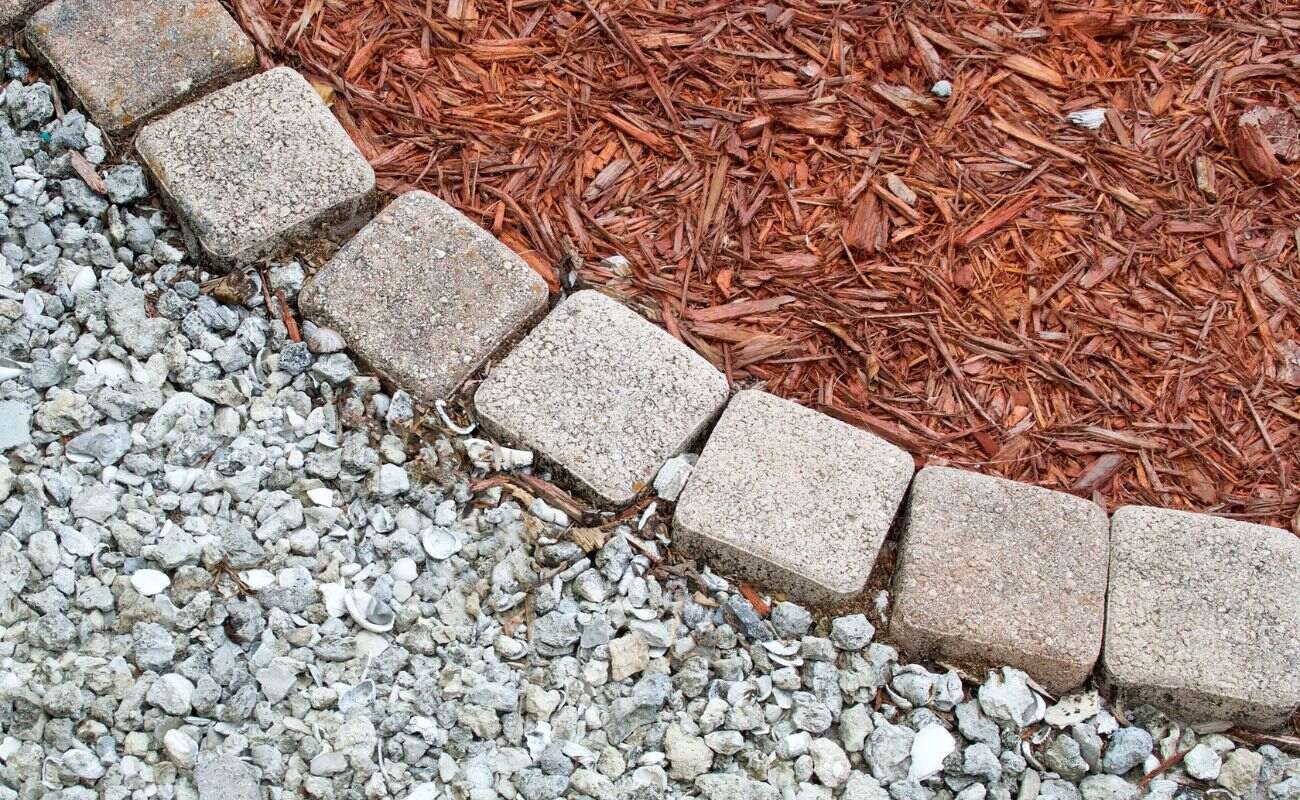
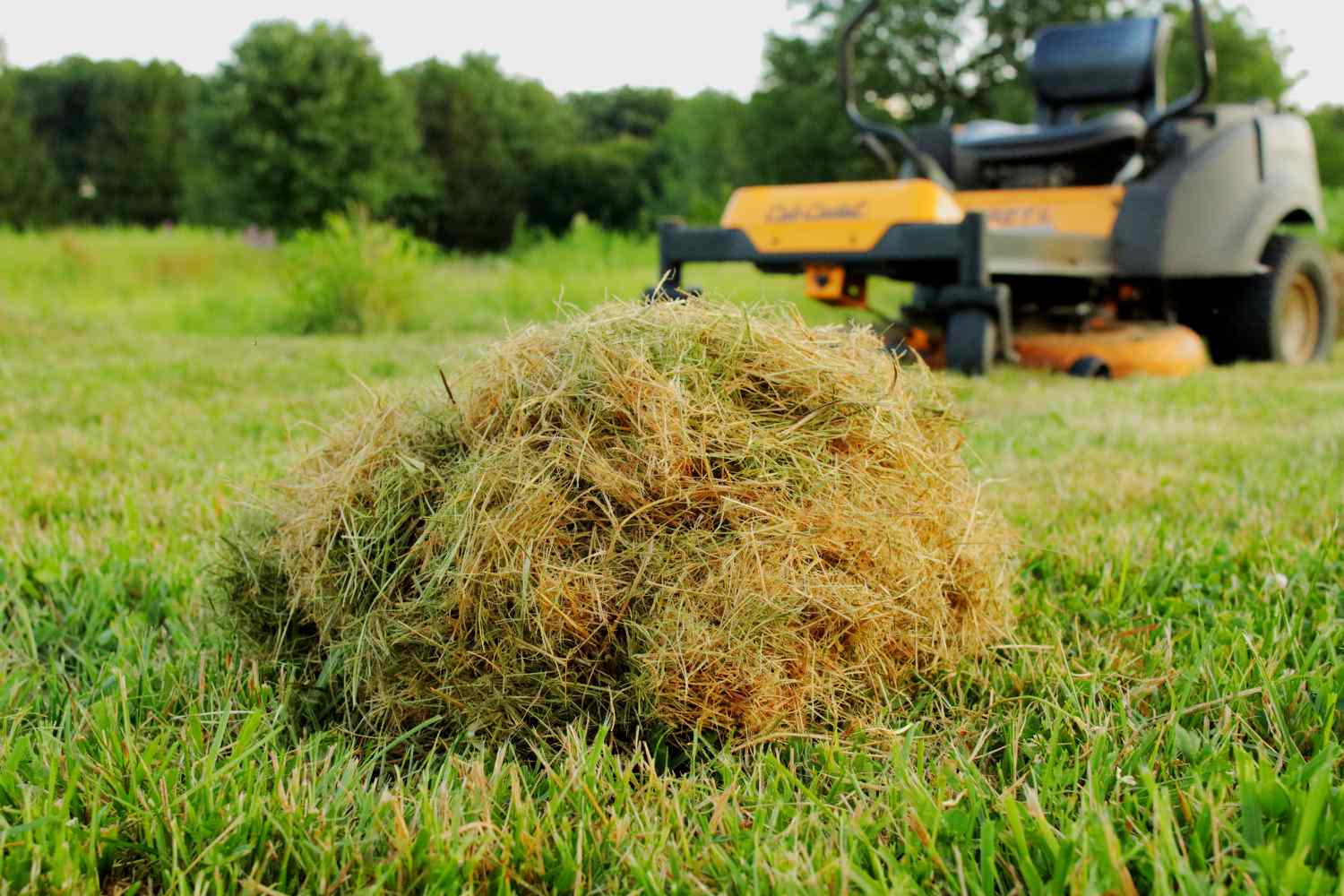
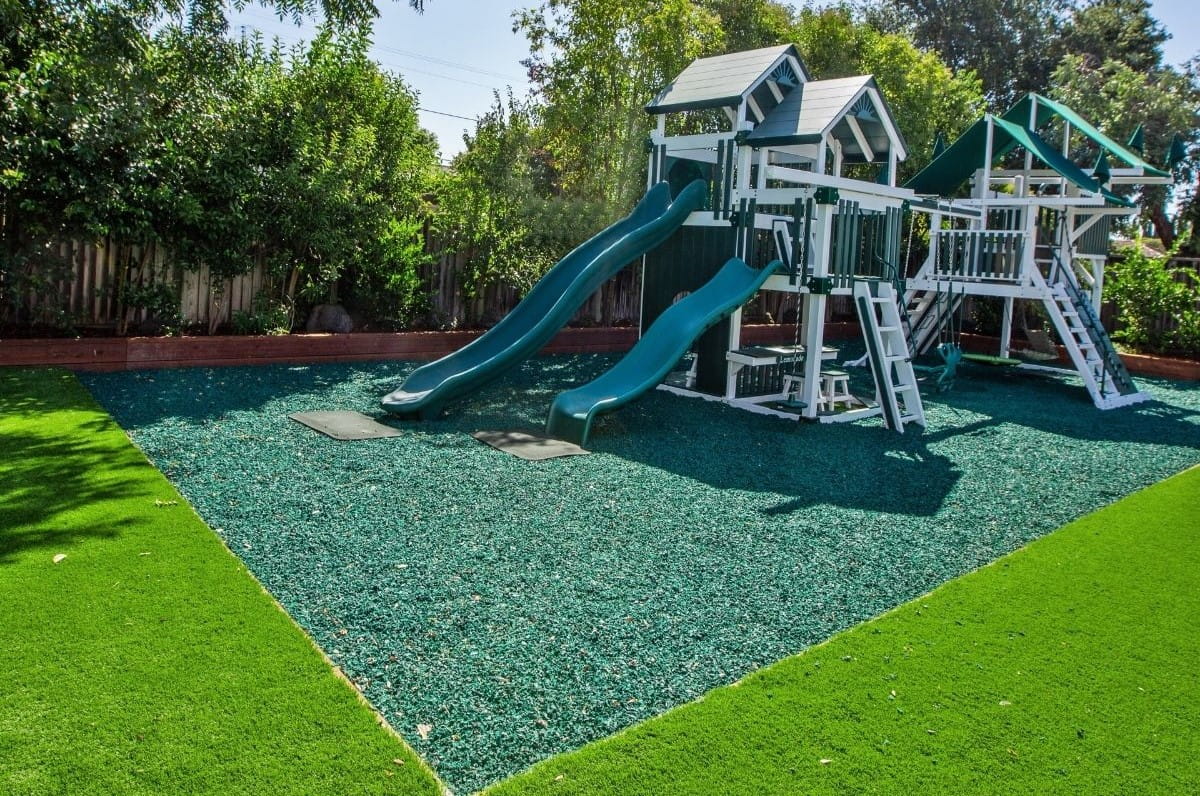
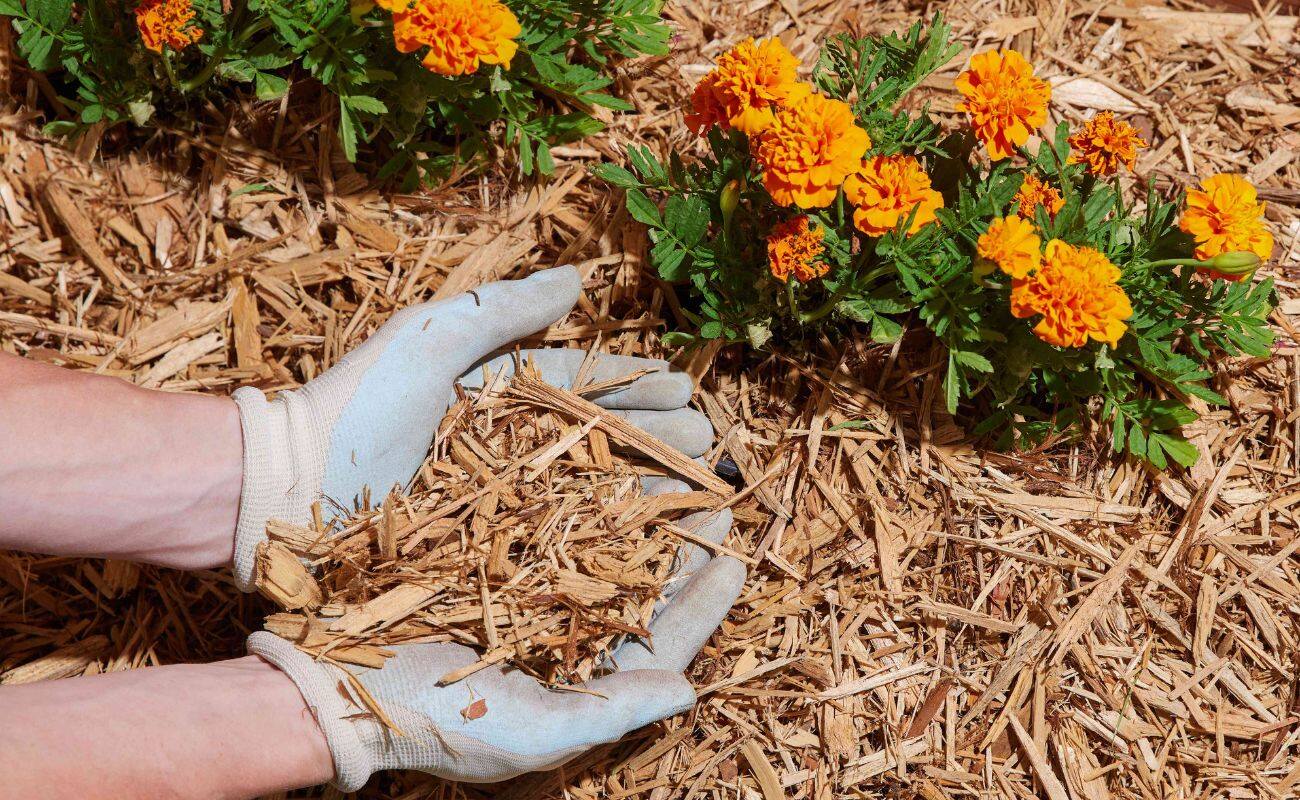
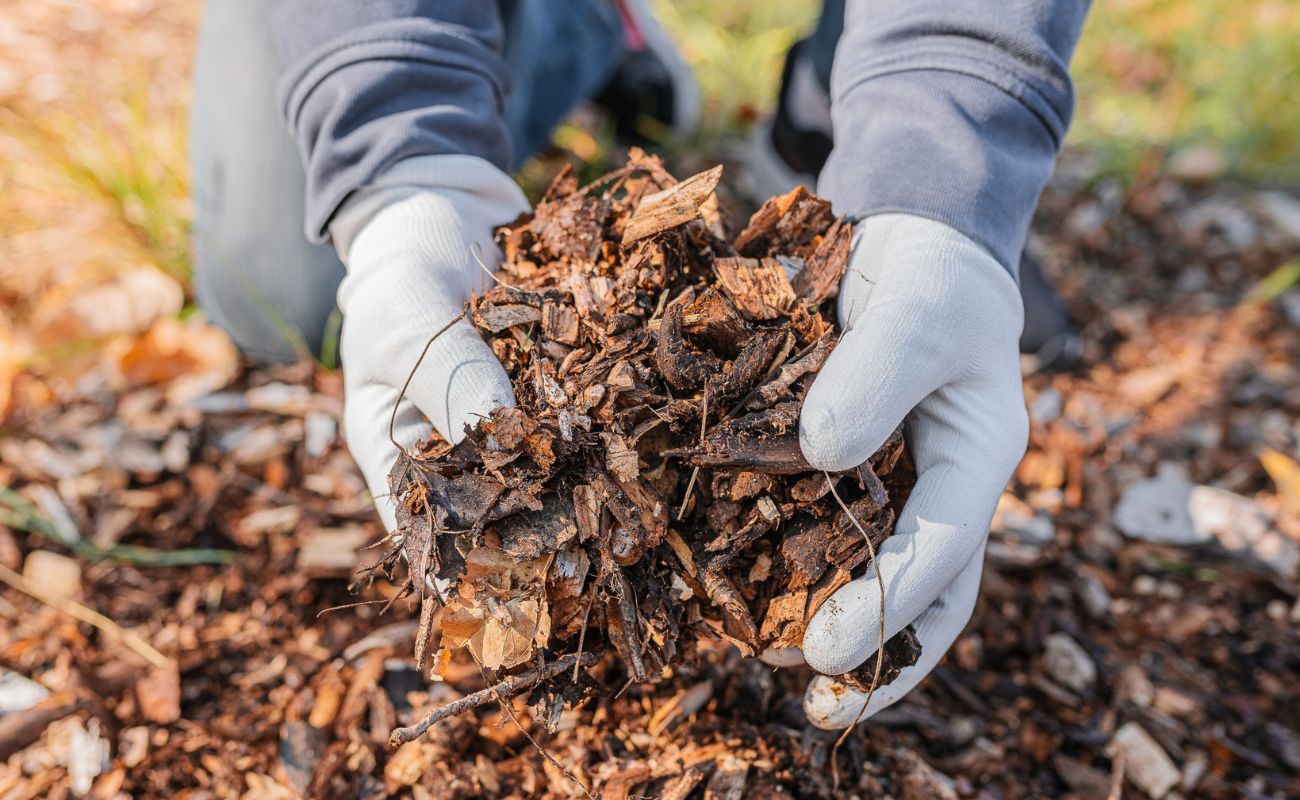
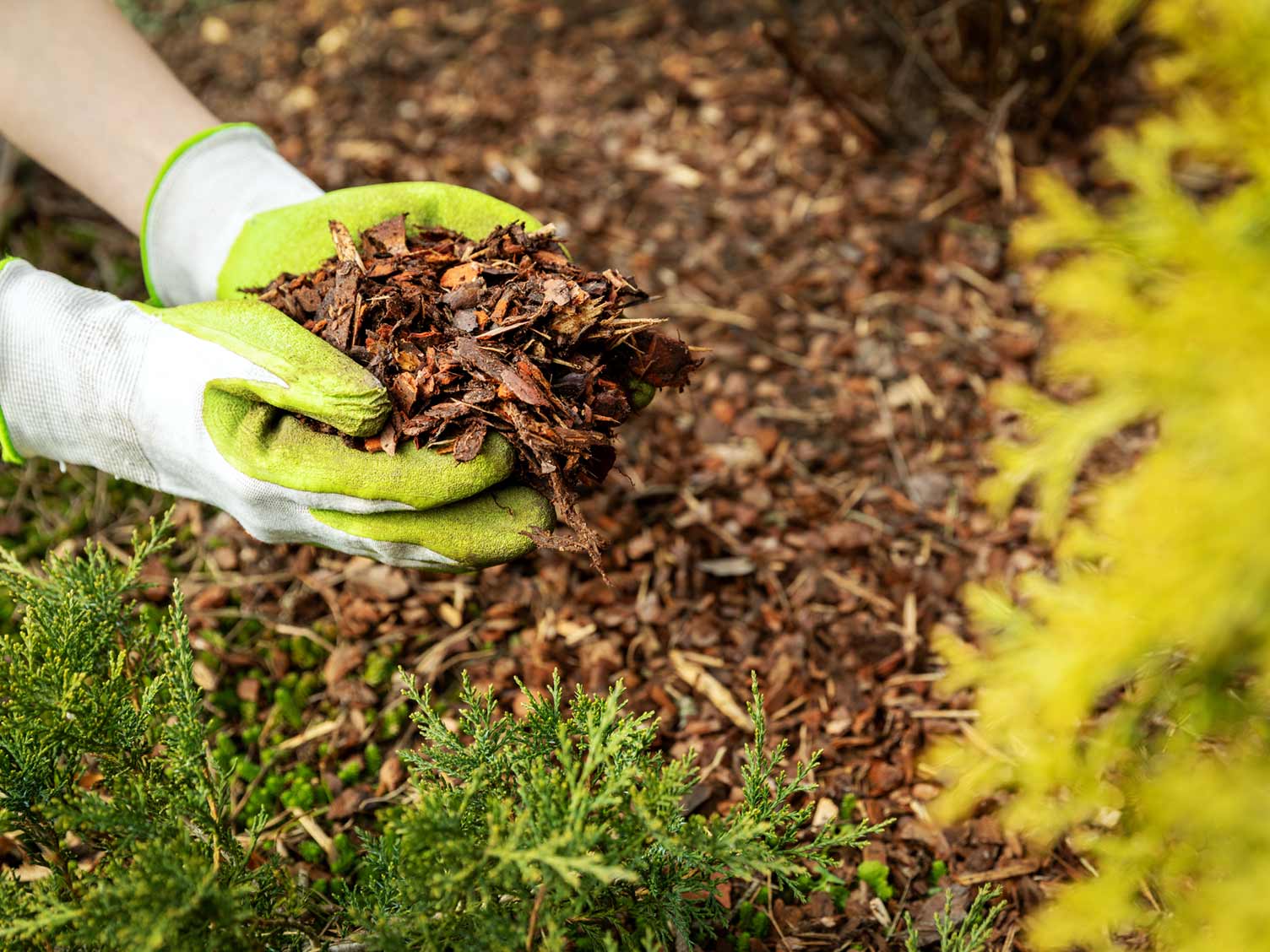
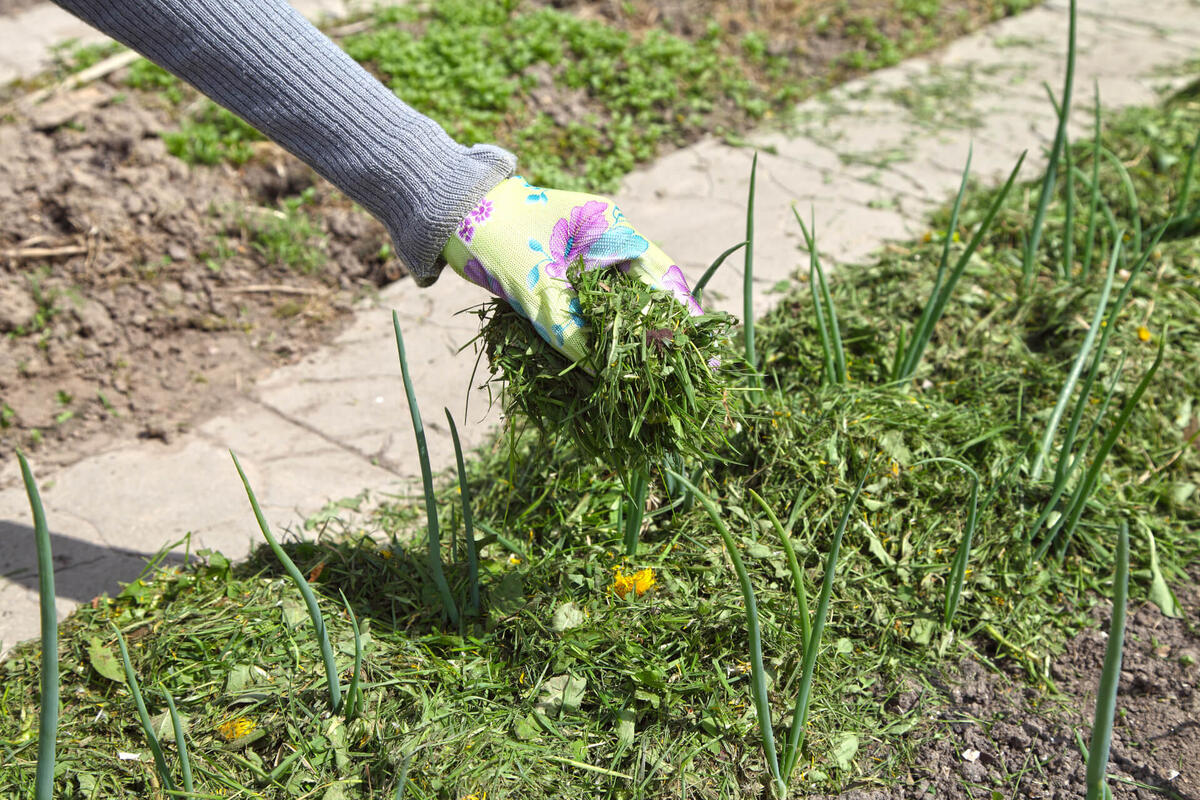
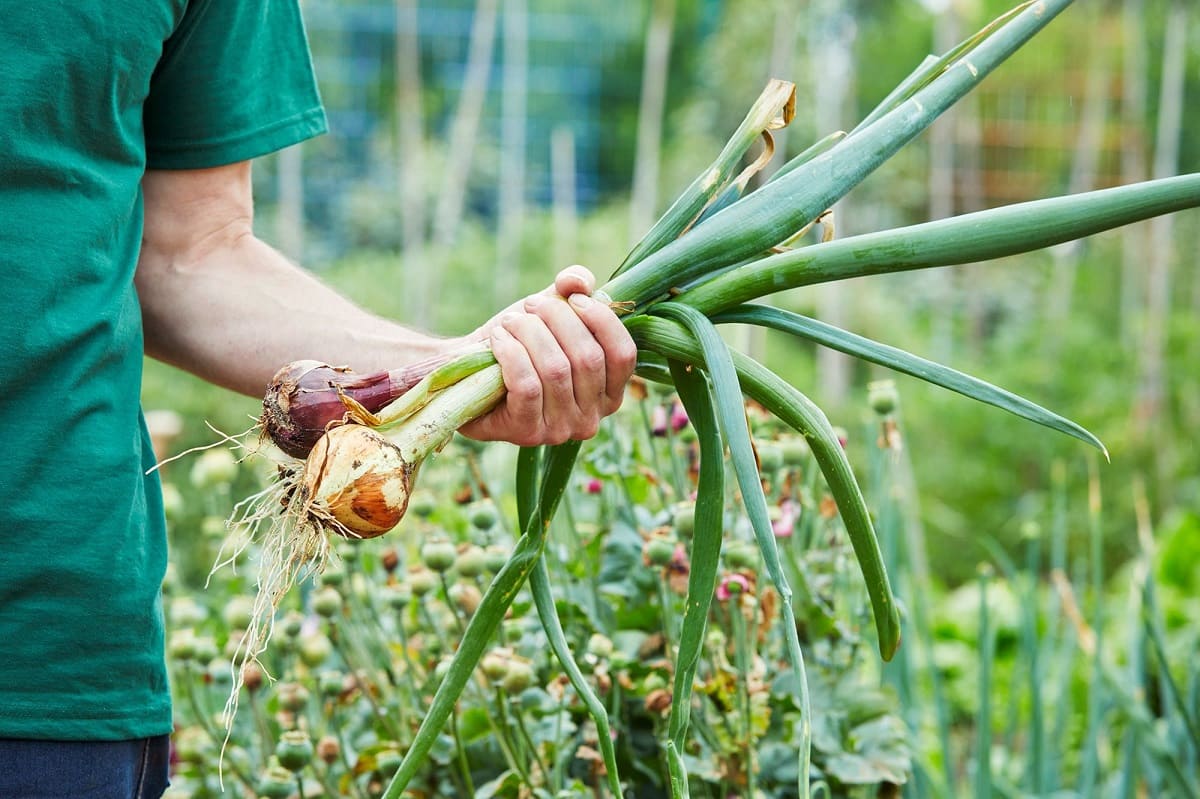
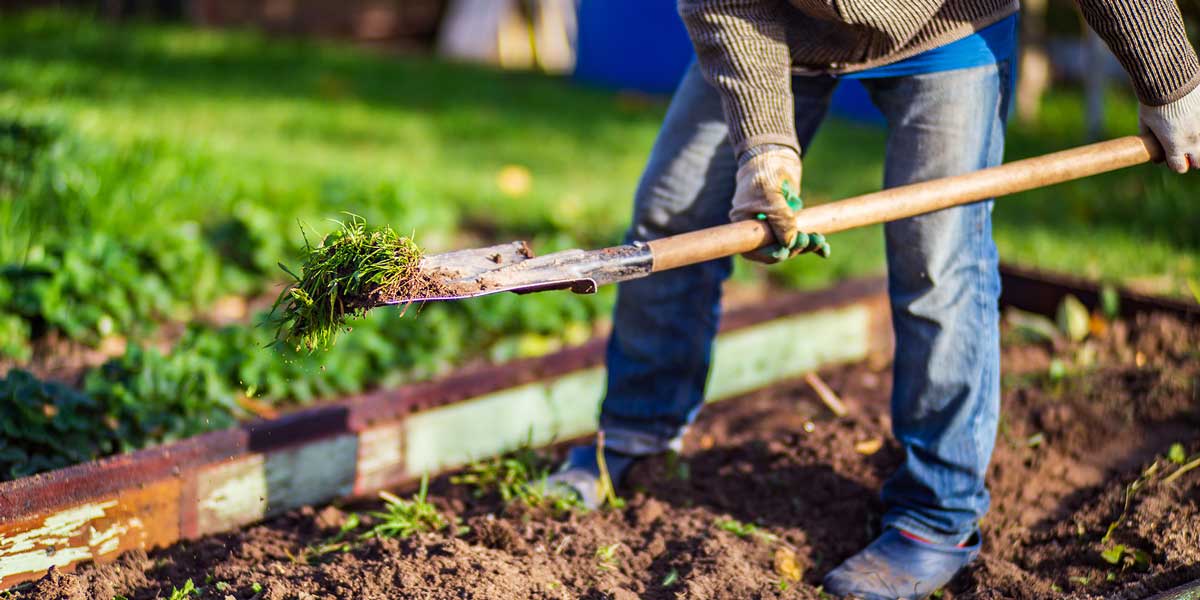
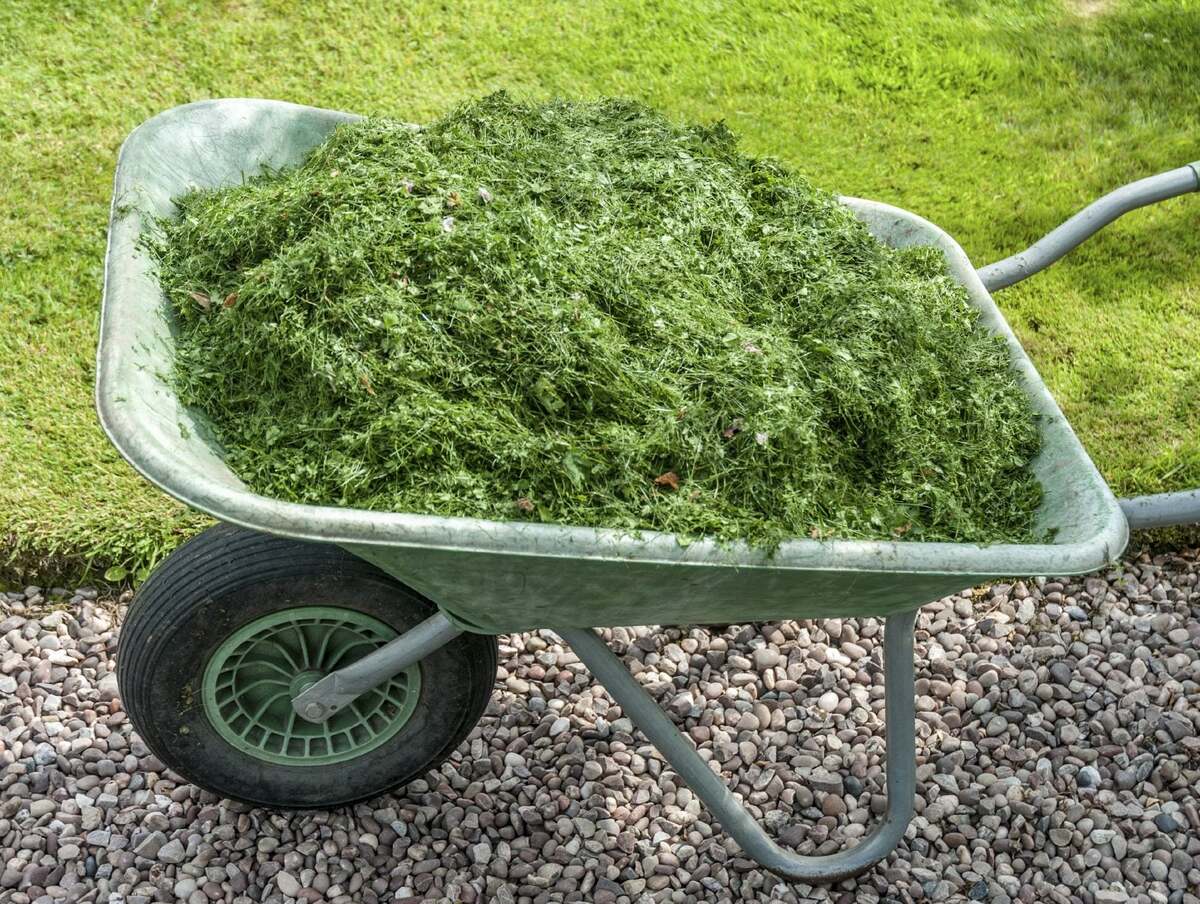
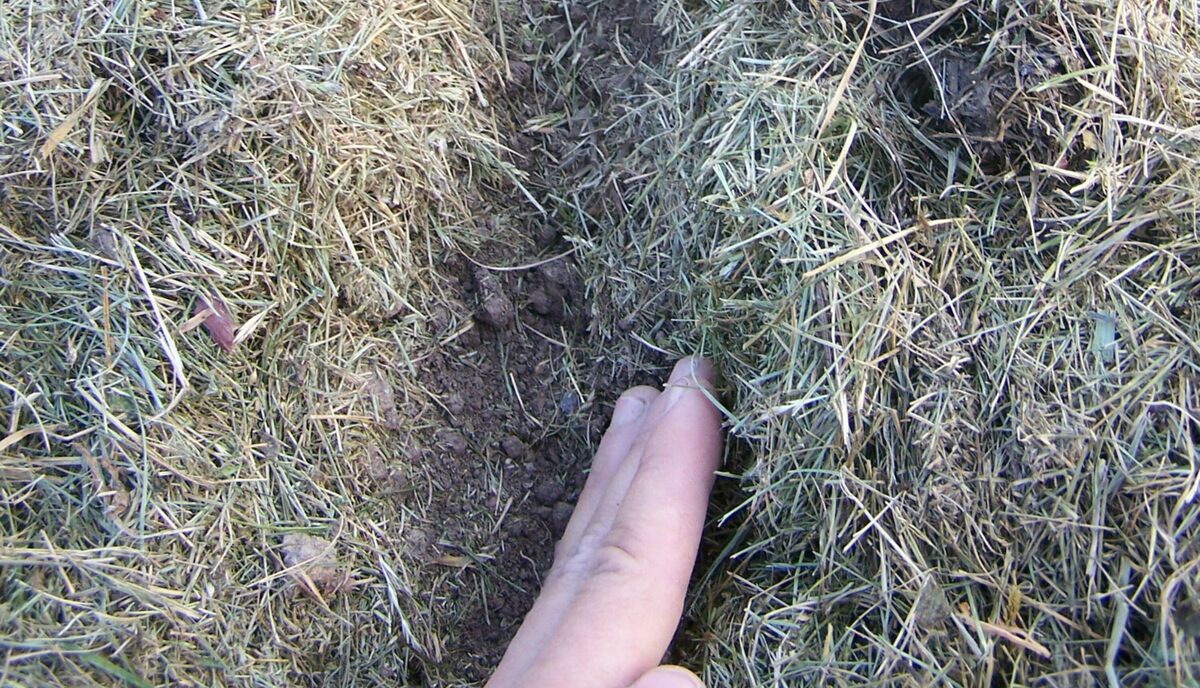
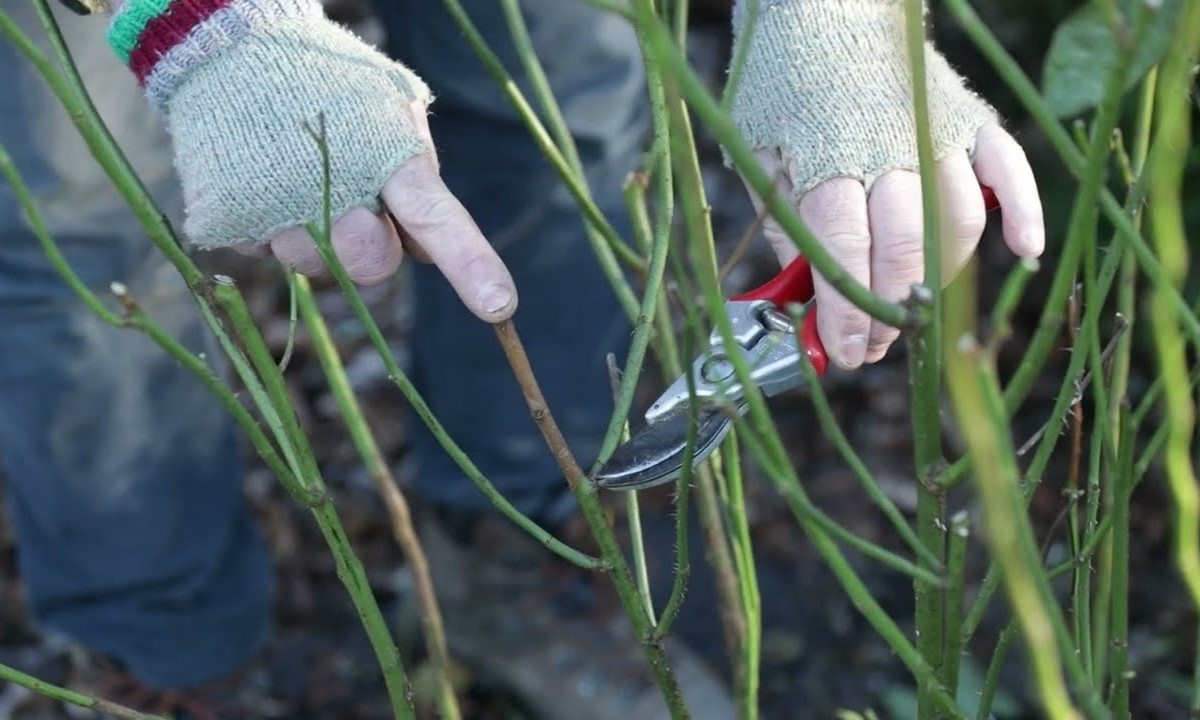

0 thoughts on “What Is The Best Mulch For A Vegetable Garden”